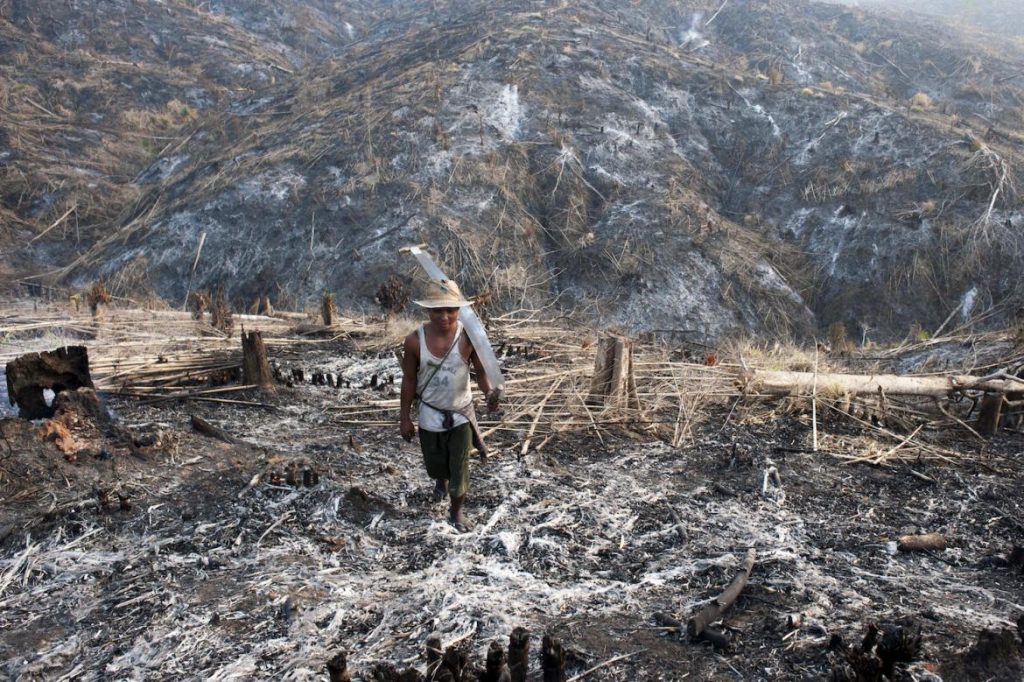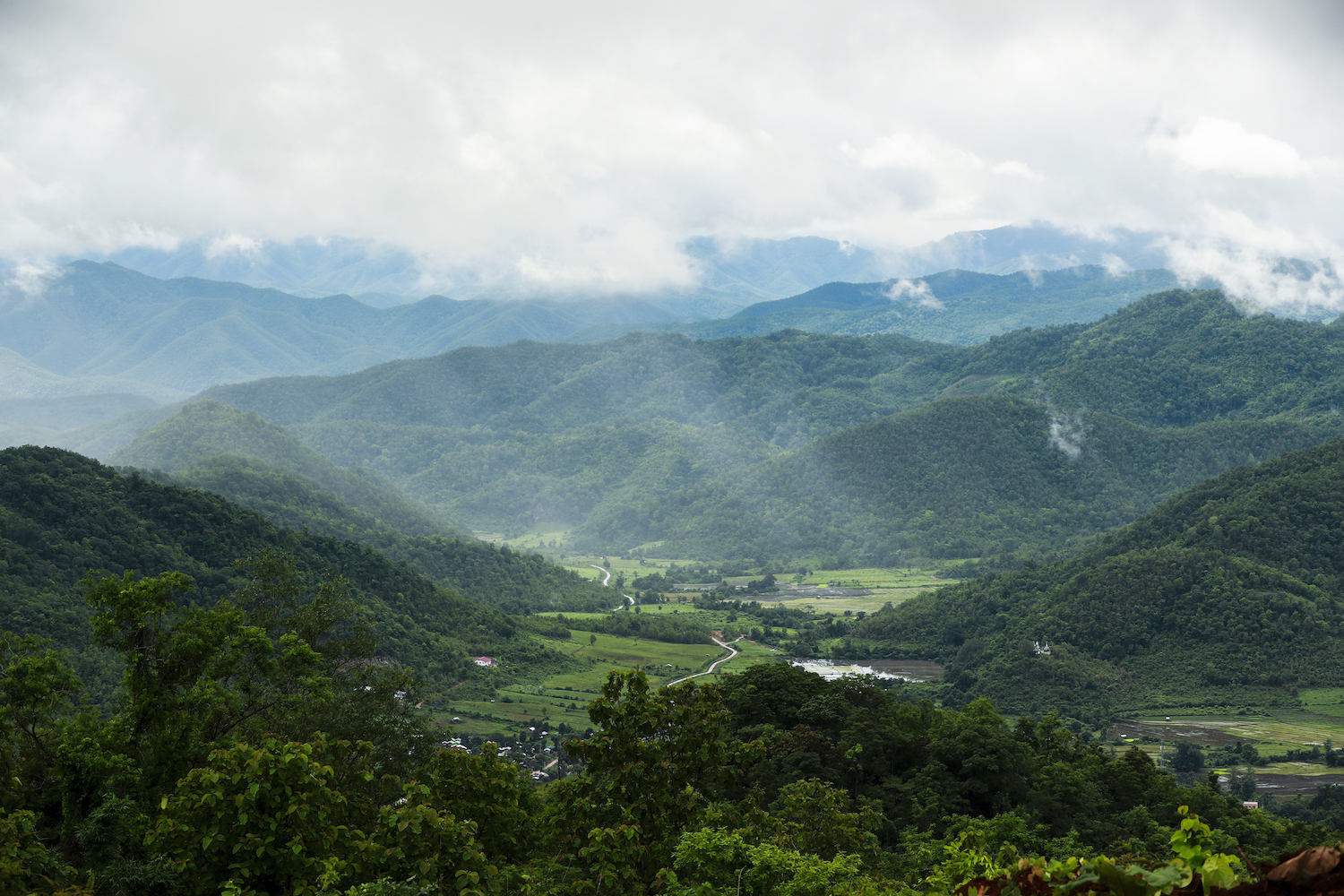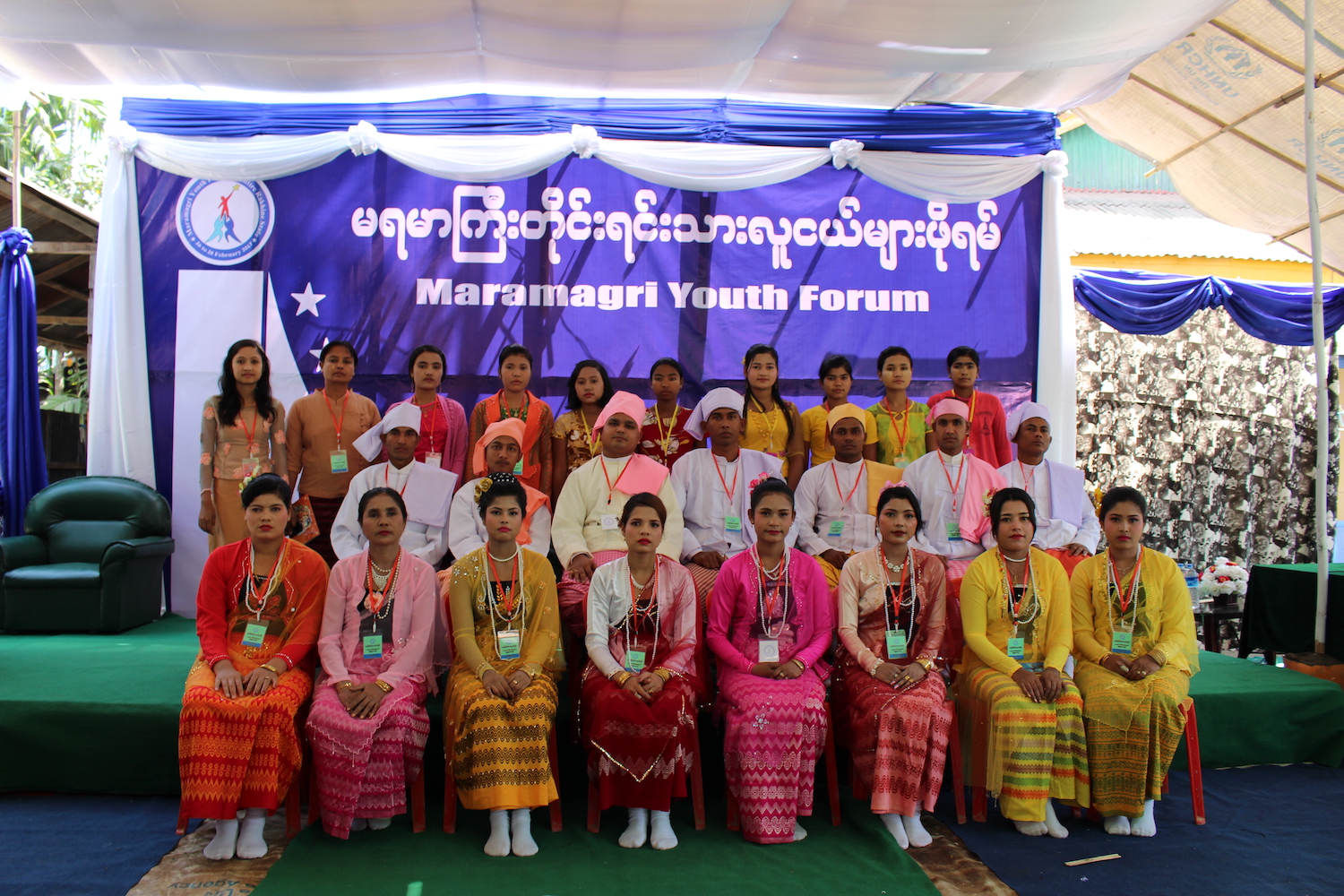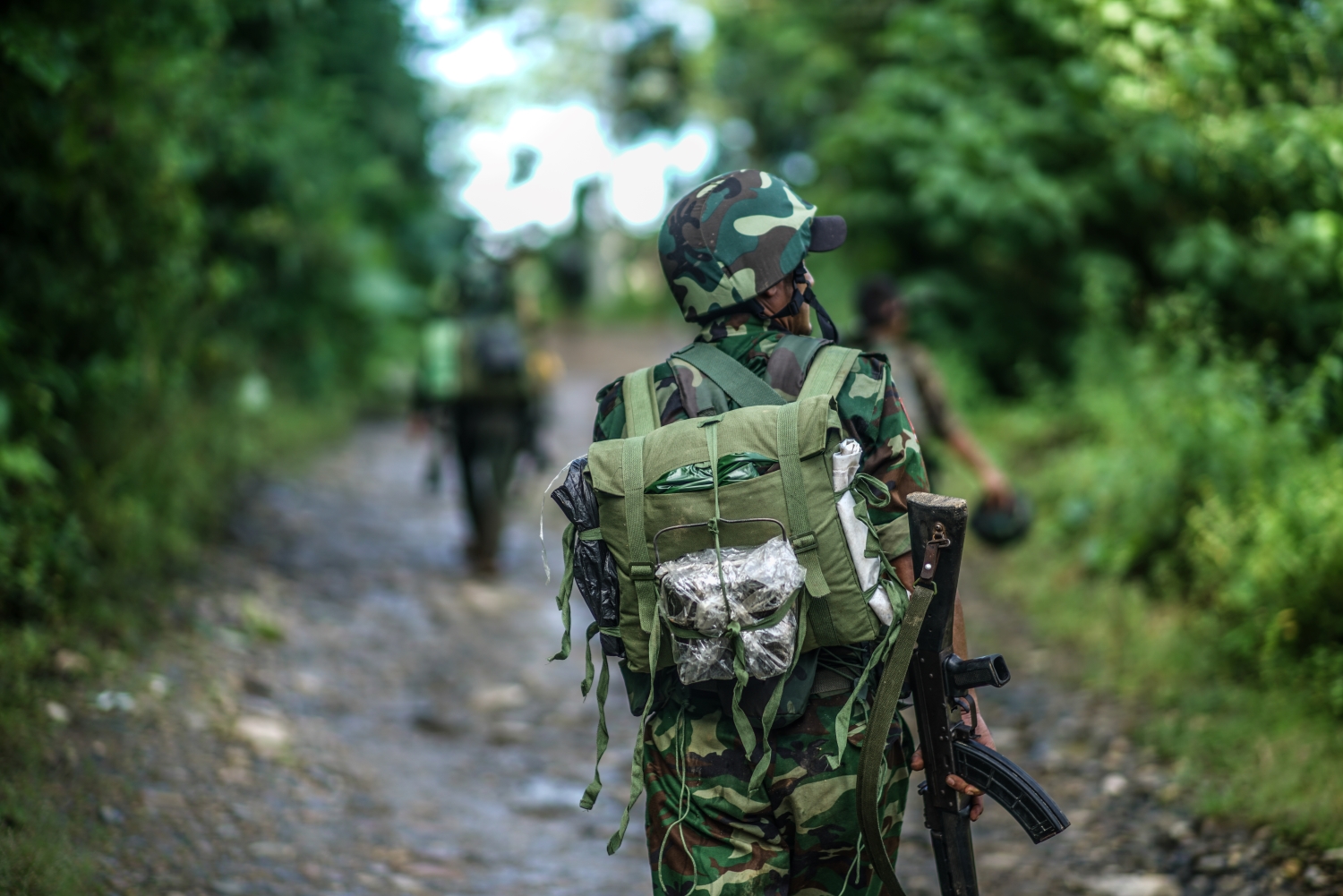An amended law governing vacant, fallow and virgin land threatens to turn millions of smallholder farmers into criminal trespassers.
By BEN DUNANT | FRONTIER
GOVERNMENT PAPERWORK would have you believe that a third of Myanmar’s landmass, totalling almost 50 million acres, is “vacant”, “virgin” or “fallow”. This is ostensibly idle land and its potential for generating food and revenue for the country is being wasted. As foreign investment declines and the domestic economy slows, unproductive land is a luxury that Myanmar seemingly cannot afford.
However, the maps and land registers that sit in the dusty local offices of the Department of Agricultural Lands Management and Statistics are radically at odds with the facts on the ground.
According to the department’s statistics, 82 percent of the land classified as vacant, virgin or fallow is in Myanmar’s ethnic nationality states. Much of this land is being used for farms, gardens, orchards, productive forests and communal village land – often in accordance with customary law and practice, with minimal intrusion by the state.
Customary land tenure systems vary substantially among Myanmar’s ethnic communities, particularly in how they determine individual versus communal rights. Far from being informal, ill-disciplined and inefficient, these systems are often intricate, closely regulated and uniquely well adapted to marginal, ecologically fragile upland areas.
Support more independent journalism like this. Sign up to be a Frontier member.
Yet, these systems and the rights that underpin them exist in a legal vacuum – and land rights activists and farmers’ groups believe that recently passed amendments to the 2012 Vacant, Fallow and Virgin Lands Management Law could criminalise and dispossess millions of smallholder farmers in the ethnic borderlands, despite the apparent exemption of customary land use systems from the law.
From farmers into trespassers
The amended law, enacted on September 11, requires all those occupying land classified as vacant, fallow or virgin to apply for a land use permit from a management committee made up of government departments, or risk falling foul of a new trespassing offence. The permits are designed mainly for commercial concessions; they typically need to be renewed every 30 years and cannot be sold or transferred, even to family members, without government permission.
Those who fail to submit applications with “detailed information” about the extent and use of the land, or have their applications rejected, will be served summary eviction notices, without a stated right of appeal. If convicted of trespassing they face a maximum penalty of two years in prison and a fine of K500,000.
Before the amendments, trespass offences were confined to land concessions that the government had formally granted under the law. Now, anyone can potentially be accused of trespassing for using – or even walking over – any of the almost 50 million acres classified by the government as vacant, fallow or virgin. This is regardless of whether or not the land in question is subject to an actual concession, and whether or not the individual is even aware of the land’s classification.
Raising the alarm
Civil society groups lobbied National League for Democracy MPs, who form a large majority in the Union parliament, to reject the proposed changes to the law. The party had made resolving land disputes and protecting the tenure of smallholders a central plank of their 2015 election campaign. Yet, the MPs passed the amendments.
Many assumed that implementation would be subject to the usual delays that characterise Myanmar bureaucracy. However, the Vacant, Fallow and Virgin Lands Management Central Committee, the permit-granting body chaired by the Ministry of Agriculture, Livestock and Irrigation, issued a notice on October 30 that stipulated a six-month deadline from the law’s enactment for permit applications, and reiterated the penalties for trespassing.
This prompted Land in Our Hands, a network of smallholder farmers’ groups and civil society organisations, to issue a series of Facebook posts in Burmese, English and ethnic languages counting down to the March 11, 2019 deadline and raising the alarm. A November 16 post read, “Only 116 days to go before the customary land ownership of ethnic nationalities like yours will be destroyed forever!”
Yet, because of an 11th hour intervention from President U Win Myint, who sent the draft amendments back to the parliament, an additional section was added that exempts “customary lands designated under traditional culture of ethnic people” from the law’s provisions.
This was the first explicit reference to customary tenure in Myanmar law, but it was merely an exemption: it removes customary tenure from the vacant, fallow and virgin land law but does not place it under the protection of any other law. Customary tenure is still without legal definition, so administrative decisions on exempting it are unlikely to be consistent. Any farmers who claim customary rights are therefore being asked to take a risky gamble – provided, that is, that they are aware that they are occupying land deemed vacant, fallow or virgin in the first place.
An open letter dated November 16 that was signed by 41 Myanmar and international NGOs and civil society groups urged the government to halt the implementation of the law, in order to “prevent the imprisonment and eviction of innocent individuals and communities”, and to enforce a moratorium on all new land concessions to private entities under the law.
Noting that most of the land in question is in the ethnic borderlands, the letter argued that the amended law would also “undermine the peace process”, both because “ethnic leaders prioritize recognition of customary land” and because “persons displaced by conflict lived in areas which may now be considered VFV land” and stand to lose whatever claim they still have to these lands.
A tilted playing field
The objectives of the amendments to the law were not stated and remain unclear, but the harsh punishments they outline, if wielded correctly, could be used to tame the worst excesses of illegal natural resources extraction and plantation agriculture in the borderlands.
The growth in environmentally damaging tissue culture banana plantations overseen by Chinese investors in parts of Kachin State could, for instance, be targeted. Some of these plantations are reportedly on land concessions granted with little transparency under the vacant, fallow and virgin lands law.
However, the law as it stands treats smallholder farmers in the same way as large companies. For a given parcel of land, a poor ethnic Zaiwa farmer in eastern Kachin is subject to the same red tape, and the same potential punishments, as a Tatmadaw-linked conglomerate.
There are also fears that the amendments to the law, as well as those planned for the 2012 Farmland Law and the 1894 Land Acquisition Act in the current session of parliament, will undermine the National Land Use Policy. The policy was developed painstakingly over four years and endorsed in January 2016 by the outgoing Union Solidarity and Development Party government.
The NLUP states among its core objectives the harmonisation of Myanmar’s various land laws in a standalone National Land Law, the strengthening of land tenure security for “all people in both urban and rural areas” and recognising and protecting the “customary land tenure rights and procedures of the ethnic nationalities”.
The National Land Use Council, envisaged by the NLUP as the primary drafter of a National Land Law, was only inaugurated this year. At the first National Land Use Forum in Nay Pyi Taw in October, NLUC chairman Vice President U Henry Van Thio committed to drafting the law.
The council will meet again this month. Whether it can wrest control of the parallel, and seemingly countervailing, process of amending individual land laws in the Union parliament remains to be seen.







